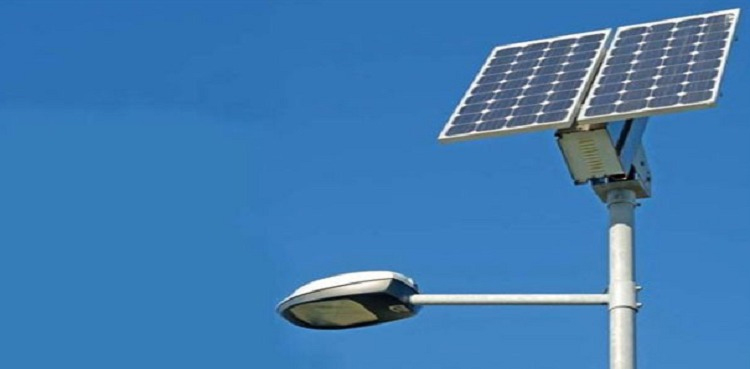
Across Pakistan, a sweeping shift toward solar energy is underway as the adoption of solar installations, both large and small, accelerates across residential, commercial, and industrial sectors. Spurred by falling costs and the promise of energy independence, this solar surge is reshaping the nation’s energy landscape. But as this transformation unfolds, it is also exposing a troubling divide.
For many who cannot afford the upfront costs of solar systems, dependence on the grid is becoming increasingly costly. With the burden of grid maintenance falling disproportionately on grid-dependent consumers, Pakistan faces an energy crisis that could drive even deeper economic divides.
Under Pakistan’s current net-metering policy, those who invest in solar, whether for home, business, or industry, enjoy significant savings. By generating their own electricity and selling excess power back to the grid, they can offset or even eliminate their utility bills. But this setup creates a critical imbalance. Grid-dependent consumers, many of whom are already struggling to afford their energy costs, are shouldering an increasing share of the costs needed to maintain and stabilize the grid.
At a recent seminar organized by the Institute of Policy Studies, Navigating the Solar Surge: Ensuring Equitable Energy Access in Pakistan’s Power Sector, experts emphasized the urgency of addressing these disparities. As solar adoption continues to grow, the fixed costs of running the grid—including transmission, distribution, and voltage control—are being transferred to those who cannot afford to generate their own power. For low- and middle-income households, small businesses, and communities in underserved areas, these rising tariffs are already difficult to bear.
“Those who depend on the grid are effectively paying more to keep it running as solar adopters contribute less,” says Khalid Rehman, Chairman of the Institute of Policy Studies. “We’re heading toward an energy system that could make electricity unaffordable for millions if adjustments aren’t made.”
The financial strain on grid-dependent consumers has become evident, particularly in light of rising energy tariffs. With high inflation, families are facing impossible choices between basic living costs and their monthly energy bills. Those tied to the grid now bear an increasing share of costs for infrastructure and operations that solar adopters bypass. As a result, many low-income households and small businesses face the reality of energy poverty, where even essential power becomes unaffordable.
Beyond financial impacts, the shift to solar is also testing the limits of Pakistan’s power infrastructure, which was designed for centralized, grid-based generation. The influx of distributed solar systems is introducing operational challenges, especially in managing energy flow fluctuations, a phenomenon known as the “duck curve.” During daylight hours, solar power floods the system, lowering demand on the grid; after sunset, demand surges as solar generation declines. This prevalent challenge of demand variation calls for immediate action on adopting better price signal mechanisms for daytime grid demand increase and managing economics. On the technical front we have a plethora of options to consider. From advanced dispatch schedule models to flexible ramping products there is a variety of combinations available with the system operator to manage grid stability.
Countries leading in renewable energy, such as Germany, Australia, and the United States, have addressed similar issues by introducing policy reforms that promote equitable renewable adoption. Shifting from net metering to “net billing,” for example, ensures that solar exports are credited at a rate that reflects actual grid costs, rather than subsidizing one group of consumers at the expense of another. Other measures, like minimum monthly fees and demand charges, also help distribute costs fairly, ensuring that all users contribute to grid upkeep.
Pakistan, however, has been slow to adapt, leaving grid-dependent consumers with few protections as the shift to solar accelerates. If current policies remain unadjusted, the growing imbalance will only widen, leaving Pakistan’s most vulnerable consumers at risk of being left behind.
For policymakers, the path forward is clear. As Abu Bakar, Head of Energy and Sustainability at Amreli Steels, remarked at the seminar, that Pakistan’s energy transition cannot leave grid-dependent consumers behind. he added that to be sustainable, this transition must benefit everyone, not just those who can afford to install solar systems.
Creating a fair and resilient energy future for Pakistan means ensuring that grid-dependent consumers are not burdened with the costs of an unbalanced system. This will require policy reforms that protect these consumers from bearing an undue financial load, while also promoting the continued growth of solar. By rethinking net metering policies, incentivizing investment in grid-stabilizing technologies, and implementing fair cost-sharing measures, Pakistan can build an energy system that is both green and equitable.
As the country moves toward a cleaner energy future, the benefits of solar should extend to all, not only to those who can afford to the shift to solarization. A just energy transition will require thoughtful, inclusive policy measures that balance the promise of solar with the pressing needs of those who remain fully reliant on traditional energy sources. A few visible options can be tagging buy-back rates to a floating percentage of your energy purchase price, imposing fixed charges to counter the cost shift on grid consumers and also to overhaul the regulatory structure of incentive schemes by incorporating exit clauses and introducing program caps. The key here is not to reinvent the wheel but rather swift action by the policy makers to ensure a just transition for all.
Mr. Muhammad Wali Farooqi is an Energy economist with a focus on optimizing global energy systems. Specializing in analyzing carbon policies to mitigate emissions. Advocate for circular economy principles, minimizing waste and promoting sustainability. Committed to addressing climate change challenges through pragmatic solutions. Positioned to drive positive change at the intersection of economics and the environment. Currently he is serving as a Research Officer at Institute of Policy Studies, Islamabad
from Science and Technology News - Latest science and technology news https://ift.tt/sodQ8JO